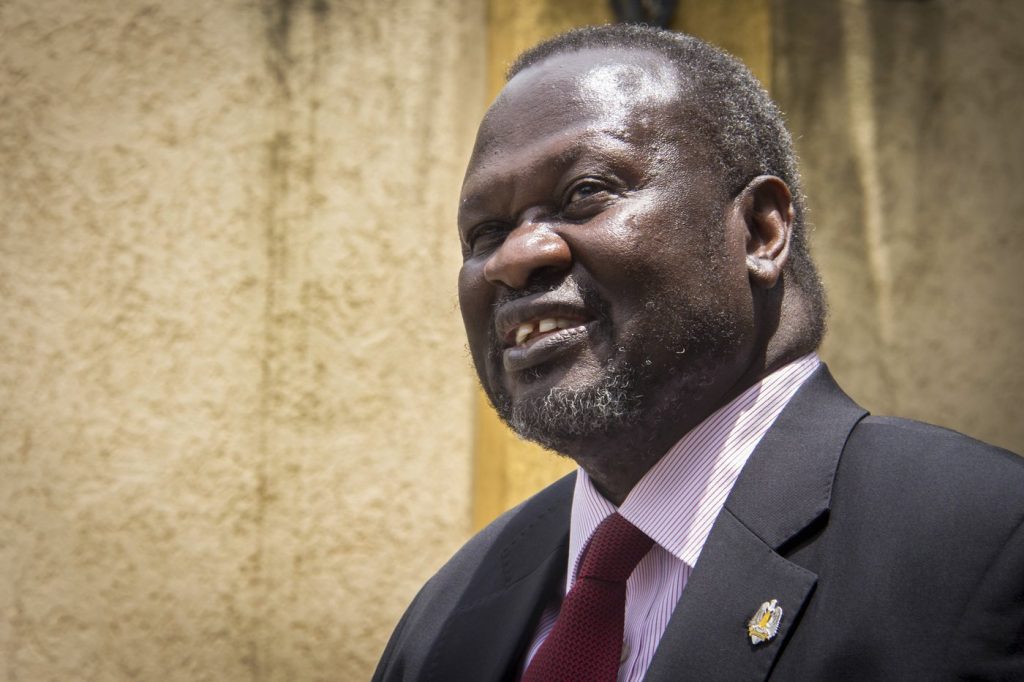JUBA, South Sudan – The criminal trial of suspended Vice President Riek Machar commenced on Monday in the capital. This marked the first public appearance of Machar since he was placed under house arrest in March. Machar appeared in a cage alongside his co-defendants, which included seven others facing various serious charges.
Earlier in this month, President Salva Kiir suspended Machar from his position as deputy following the filing of criminal charges against him. The charges pertain to Machar's alleged involvement in an attack on a garrison of government troops earlier this year. In addition to treason, the charges against Machar and his co-defendants include crimes against humanity, murder, conspiracy, terrorism, and destruction of public property and military assets.
The trial is being held by a special court in Juba and has been broadcasted on national television. During the opening remarks, Machar's lawyer contested the legitimacy of the court, describing it as “incompetent” and lacking jurisdiction. The defense argued that Machar cannot be criminally charged without jeopardizing the 2018 peace agreement made between Machar and Kiir, which aimed to end a devastating civil war that resulted in an estimated 400,000 casualties.
The 2018 agreement established the framework for a transitional government, in which Machar has been serving as the first vice president. Defense attorneys emphasized that the agreement governs South Sudan, especially as the nation remains on the brink of returning to intense conflict. They asserted that Machar continues to retain his title as vice president under the stipulations of this peace deal.
The proceedings of the trial were subsequently adjourned until Tuesday. It is important to note that both Kiir and Machar played pivotal roles in the rebel movement that led to South Sudan's independence from Sudan in 2011. They come from rival ethnic groups; Kiir is from the Dinka, the largest ethnic group, while Machar belongs to the Nuer, the second-largest. Their military rivalry has its roots in the 1990s, when Machar led a faction that faced accusations of betrayal against the rebel movement. Tensions escalated during this period, culminating in a massacre in the town of Bor, targeting the Dinka, which deepened the mistrust between Kiir and Machar.
Despite their collaboration in the government, analysts have indicated that Kiir and Machar do not fully align, and their rivalry has grown as Machar awaits his opportunity to assume the presidency while Kiir remains in power. The criminal charges leveled against Machar seem to be viewed by some experts as a pretext for a political power struggle, suggesting the case is inherently political rather than strictly judicial.
Presidential elections in South Sudan have faced repeated delays. Notably, in 2013, Kiir dismissed Machar, citing a coup plot, which triggered violence in Juba as soldiers loyal to both leaders clashed, igniting a civil war characterized by ethnic violence.
The report illustrates the ongoing turmoil within South Sudan's political landscape, portraying the complex relationship between the two leaders and the broader implications for peace and stability in the region.











